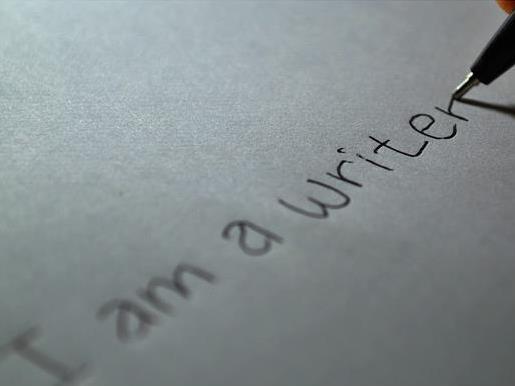Image via pixabay
Women writers continue to face under-representation in the publishing industry, despite a host of programs and prizes aimed at addressing the problem.
The VIDA Count in the US and the Stella Count in Australia have raised awareness of the issue and enabled observers to put statistics on the problem. In response to editors complaints that women writers and reviewers pitch less than men, there are initiatives such as Pitch, Bitch, designed to encourage women to get their work under the noses of publishers.
But the statistics still show gender bias. ‘We know that women aren’t represented in our literary prizes and in our literary pages.They are not reviewed as often, and women aren’t reviewers as often, as their male counterparts, said Lisa Dempster, Artistic Director and CEO of the Melbourne Writers Festival.
Studies have identified a ‘a confidence gap‘ between the sexes, suggesting and that it is often self-doubt that stops women from achieving their goals.
So this year, as part of the Emerging Writers’ Festival, a panel of four prominent women writers gave us the low down on how to school self-confidence and stop self-sabotaging our work.
1. Don’t diminish
The number one thing women do to self-sabotage their work is diminishing themselves by using qualifiers. ‘One thing that is a hallmark of feminine presentation is saying that I’m just a children’s writer, I’m just a journalist, I’m just an editor, I’m just a CEO of a small publishing house,’ said award-winning children’s author Kirsty Murray. ‘It is a default position, and we do it as a way of self-effacing, particularly as Australian women – we are great self-effacers. It’s an aspect of humour but, in the end, it is an aspect of self-sabotage too.’
2. Take credit
It’s not arrogant to accept compliments nor to enjoy your achievements. ‘You’re not lucky, you’re smart and you worked for it,’ Murray advises women who have achieved publication, positions or prizes.
Dempster, who is known for her achievements as a young director first at the Emerging Writers Festival and now at the Melbourne Writers Festival, said she had to teach herself to take credit for her achievements
‘When I first became director of the Emerging Writers Festival I undermined myself a lot. For a long time I would say I just got really lucky, someone just tapped me on the shoulder and I accidentally became the director of the Emerging Writers Festival”.
Dempster advises women to become aware of the language they use when they speak or write about themselves and consciously chose language which does not undermine their own contribution to success.
3. Complain
If you notice gender bias, say something. Send an email, make a phone call, Put gender on the agenda.
When Kirsty Murray noticed a lack of women on panels and in programs at one writers’ festival, she wrote to the Minister for the Arts to complain. The next year representation was equal. ‘It was just about saying look, have you noticed?’ said Murray.
Dempster also emphasized the importance of speaking up about gender inequality in the industry. ‘The fact that these decisions are often unconscious doesn’t change it…that’s why it’s really important that we can collectively get together and call people out when we see a list of authors and there is only one woman on it,’ said Dempster.
4. Get a mentor
Andrea Hanke, editor-in-chief of Bookseller + Publisher, suggested finding a mentor as a great way to develop skills and connections in the industry. But how does one approach a potential mentor? ‘If you see someone in the industry and think I would like to reach that point or I admire what they do, I would just ask them if you can meet them for a coffee because you have some questions,’ said Hanke.
Events like the Emerging Writers Festival are a great way to meet established and emerging writers and to introduce yourself, added Dempster, and ‘you can always follow this up with a coffee later’. If the idea of introducing yourself to someone you admire is to intimidating internships are another, more formal, way to engage possible mentors.
5. Ask, What Would Margaret Atwood Do?
‘When you grow up, what writer do you want to be?’ asked Kirsty Murray. ‘I think it is really good to look at the trajectory of writers you admire and think, well, what would Margaret have done? And that will help you think a little about forming your own career,’ said Murray.
Even though we often work in isolation and sometimes we can feel more like a secluded Bronte sister, you are part of a community of writers and some of the best mentors you can find are books. So hit the stacks and read everything the author you admire has written.
6. Pair up with booster buddy
Studies have found that while men only need to be 60% sure that they can do a job before applying, women are only likely to apply for a job when they are 100% certain they can meet every part of the selection criteria. This leads to more men applying for positions higher up and continues the cycle of gender disparity. Lisa Dempster suggested that having a friend specifically there to help pitch or apply for work is a real confidence boost for when you spiral into self-doubt and potentially sabotage your employment prospects.
‘Every time you want to apply for something go to that friend and say I would really like apply for this job, but they would never hire me, and your friend will tell you to shut up, you’re awesome, and here’s all the ways you meet the selection criteria, and then you do that for your friend too.’
‘Women who are self-sabotaging, who are not doing these things, are not just not getting the jobs but are not getting the further opportunities that are coming out of meeting the people who are hiring,’ said Dempster.
Think of this as positive peer-pressure. While we might fall back into the covert tactics of self-sabotage, a good friend will stick up for you and remind you how great you are. So when in doubt, ask your friend what they think.
‘Applying for jobs can actually lead to further opportunities,’ added Elizabeth Flux, freelance writer and editor of Voiceworks magazine. ‘If you just put yourself out there and make yourself known, people will remember you and keep you in mind for other things that they otherwise wouldn’t know you’re available for.’
‘You might not get the pitch, but the next time something comes up the editor might think of you,’ said Dempster.
7. Recognise Imposter Syndrome
Imposter syndrome is the sensation that we are not as intelligent or capable as the people around us seem to think we are. How on earth did we get so lucky to land this job? Why do they care about my opinion, I’m just a novice writer (notice the qualifying statements that sneak in there). Commence anxiety attack as we worry that we will be discovered as the imposter we clearly know we are.
It helps to realise that practically everybody feels like this, including those you think of as highly accomplished and confident. Unfortunately this feeling will never go away. But you need to recognise when it is happening and remind yourself that you got this far on your own smarts and you can do many more wonderful and amazing things.
8. Have great expectations
Murray says that one of the most important things a woman writer can do is to take herself and her career seriously.
‘Expect things for yourself. Expect to be paid,’ she advised. ‘There are recent statistics that one third of Australian women don’t have enough money to retire on despite a full working life, and this is part of the expectation that someone else will look after you. No one else will look after you and your career the way you will. No one, even your agent, does not have the vested interest in your financial success that you have,’ said Murray.
9. Stop being nice
Often as women we are encouraged to be too nice, to step back and let others talk. Step forward and speak up.






